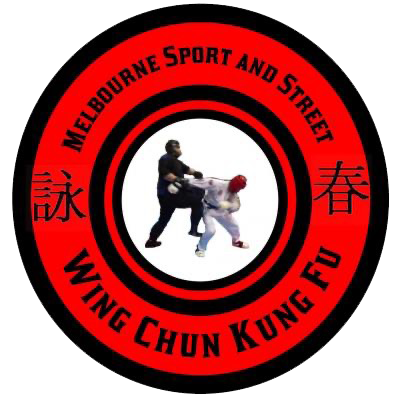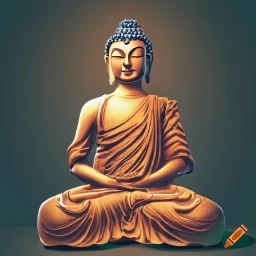Wing Chun Kung Fu’s Philosophical Roots: Understanding the Art’s Taoist, Buddhist, and Confucian Influences
By Maurice Novoa a master under the Yuen Kay Shan, Ip Man and Pan Nam lineages.
Introduction:
Wing Chun Kung Fu is a martial art that encompasses not only physical techniques but also profound philosophical principles. While the art is primarily influenced by Taoist and Buddhist philosophies, it also bears the influence of Confucianism. In this article, we will explore the integration of Confucian principles within Wing Chun and how they contribute to its holistic approach to martial arts.
The Origins of Wing Chun
This Kung Fu style originated in 17th-century China and was developed by five elders of the Shaolin temple and a legends depicts a Buddhist nun Ng Mui. Alongside the Taoist and Buddhist influences, the art was also shaped by the cultural and ethical teachings of Confucius. The integration of these philosophical traditions within Wing Chun contributes to its multifaceted nature.
Taoist Philosophy in Wing Chun
Taoism emphasizes simplicity, efficiency, and harmony with nature. These principles are reflected in Wing Chun’s techniques, which aim for directness and economy of motion. Taoist philosophy encourages practitioners to flow with the natural energy of a situation, rather than opposing it. This mindset allows practitioners to adapt and respond effectively to various combat scenarios.
Buddhist Influences in Wing Chun
Buddhist teachings of mindfulness, compassion, and nonviolence also play a significant role. Practitioners are encouraged to cultivate mindfulness to enhance their awareness of the present moment. Through meditation and the practice of compassion, practitioners develop a deep sense of empathy and respect for others. These qualities promote a non-aggressive and non-confrontational approach to conflict resolution.
Confucian Influences in Wing Chun

Confucianism, a philosophy centered on ethics, social harmony, and the cultivation of virtues, has also influenced Wing Chun. Some key Confucian principles found within the art include:
Filial Piety and Respect
Confucianism places great importance on filial piety, respect for elders, and hierarchical relationships. Wing Chun practitioners are taught to show respect to their instructors and training partners, fostering a culture of mutual respect and humility within the community.
Loyalty and Integrity
Confucian teachings emphasize the values of loyalty and integrity. These principles are reflected in Wing Chun’s emphasis on loyalty to one’s lineage, adherence to ethical conduct, and the cultivation of a strong moral character.
Rituals and Etiquette
Confucianism places importance on rituals and etiquette as a means of expressing respect and maintaining social order. In Wing Chun, practitioners follow specific training rituals and etiquette, such as bowing to the training hall and saluting their partners, demonstrating a sense of reverence and discipline.
The Integration of Philosophy and Martial Arts
Wing Chun’s integration of Taoist, Buddhist, and Confucian philosophies creates a comprehensive system that extends beyond physical combat. By incorporating these philosophical principles, it aims to cultivate not only skilled martial artists but also individuals of good character, wisdom, and moral conduct.
The philosophical aspects guide practitioners in their interactions with others, fostering a sense of harmony, respect, and empathy. This integration of philosophy and martial arts sets Wing Chun apart as a holistic practice that transcends the boundaries of combat and contributes to personal growth and social harmony.
Conclusion
Wing Chun Kung Fu stands as a testament to the integration of Taoist, Buddhist, and Confucian philosophies within a martial art. This amalgamation of philosophical traditions creates a unique and profound system that extends far beyond physical combat.
Through the principles of Taoism, practitioners learn to embrace simplicity, efficiency, and harmony. They strive for directness and economy of motion, flowing with the natural energy of a situation rather than resisting it. This mindset allows practitioners to adapt and respond effectively in combat and in life’s challenges.
Buddhist influences emphasize mindfulness, compassion, and nonviolence. By cultivating mindfulness, practitioners develop heightened awareness and focus, enabling them to navigate situations with clarity and presence of mind. The practice of compassion fosters empathy, respect, and a non-aggressive approach to conflict resolution.
Confucian values also play a significant role in Wing Chun, emphasizing filial piety, respect, loyalty, integrity, and the observance of rituals and etiquette. These principles instill a sense of reverence, discipline, and moral character within practitioners, creating a respectful and harmonious training environment.
The integration of these philosophies transcends mere physical combat, guiding practitioners towards personal growth, self-improvement, and the development of virtuous character. Wing Chun becomes a path of self-discovery, where individuals not only refine their martial skills but also cultivate wisdom, integrity, and harmonious relationships with others.
In conclusion, Wing Chun Kung Fu’s philosophical roots enrich its practice, infusing it with profound insights and guiding principles. By embracing the principles of Taoism, Buddhism, and Confucianism, practitioners embark on a transformative journey of self-cultivation, where physical, mental, and spiritual aspects harmoniously converge.

